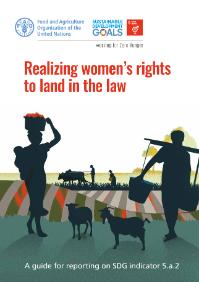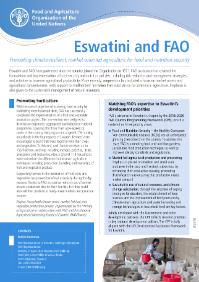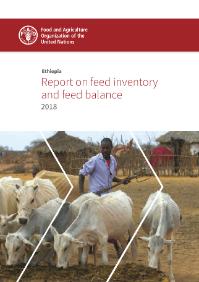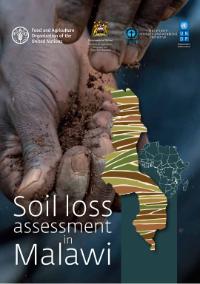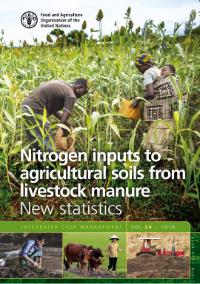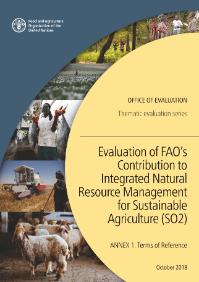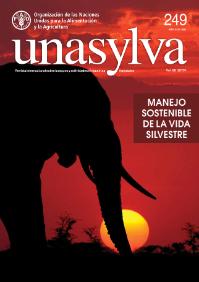Zimbabwe has been experiencing a rapid rate of urbanization amidst a failure by conventional approaches of urban land management to cope with the demand for housing. In view of these challenges, this paper investigates the feasibility and nature of land readjustment for urban land management in…
The Guide promotes adapting a convergent and people-centred gender approach towards increasing and improving the provision of goods and services from agriculture, forestry and fisheries in a sustainable manner while reducing rural poverty in different priority areas of FAO’s work. This includes…
Goal 5 of the Sustainable Development Goals (SDGs) “Achieve gender equality and empower all women and girls” recognizes the fundamental role of women in achieving poverty reduction, food security and nutrition. Target 5.a aims to “Undertake reforms to give women equal rights to economic…
Eswatini (formerly Swaziland) and FAO have partnered since the country joined the Organization in 1971. FAO assistance has covered theformulation and implementation of food security and nutrition policies, including risk reduction and management strategies,and activities to increase agricultural…
Available evidence indicates that pastoral destitution in Ethiopia is principally driven by feed and water scarcity. Feed resources ought to be considered in the broader perspective and not predominantly during emergency as is the case now. Feed inventory and balance is therefore requisite such…
Soil loss is a major threat to the agricultural development in Malawi and by extension is also a major hindrance to the overall economic development of the country since the Malawian economy is dependent on agriculture. Not only does soil loss reduce the cultivable soil depth but it also takes…
The global agricultural sector today faces the double challenge of feeding a growing population while preserving the underlying natural resources of land, water and air. In the meantime, already a third of the world’s soils are degraded. Soil and nutrient management techniques aimed at restoring…
The focus of Strategic Objective 2 stems from FAO’s vision for sustainable agriculture, which is at the heart of the 2030 Agenda. This evaluation assessed FAO’s efforts in promoting integrated approaches for making agriculture, forestry and fisheries more productive and sustainable. These…
In recent decades, many countries in sub-Saharan Africa have pursued national water permit systems, derived from the colonial era and reinforced by “global best practice.” These systems have proved logistically impossible to manage and have worsened inequality in water access. A new study…
La gestión sostenible de la vida silvestre es objeto de considerable atención en el debate internacional debido a su importancia para la conservación de la biodiversidad, la seguridad humana, los medios de subsistencia y la seguridad alimentaria. Las poblaciones locales han gestionado las…
Wildlife management is the focus of considerable international debate because of its importance for biodiversity conservation, human safety, livelihoods and food security. Local people have been managing wildlife for millennia, including through hunting. Sufficient examples are presented in this…
The climate-smart agriculture (CSA) concept reflects an ambition
to improve the integration of agriculture development and climate
responsiveness. It aims to achieve food security and broader
development goals under a changing climate and increasing food
demand. CSA…



